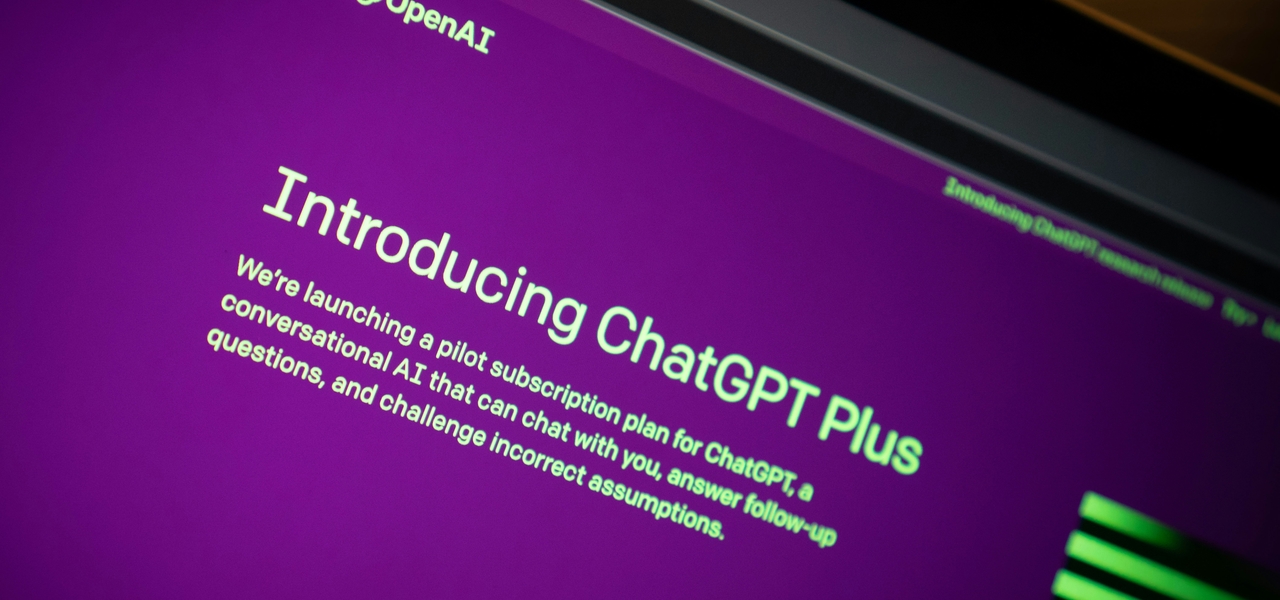Feeling confused about Artificial Intelligence? Unsure what to make of the latest developments in technology? Here are ten key headlines we think you need to know...
1. Artificial Intelligence works by computing billions of data points
The human brain is made up of neural networks: billions of neurons connected to one another. Artificial intelligence mimics that structure on a microchip, with billions of transistors connected to one another. When fed with enough data, it is able to mimic human intelligence. Due to the sheer computational power involved, the ‘intelligence’ shown by AI is often able to exceed the intelligence of its creators.
2. There are different types of AI
Different forms of AI are grouped together only by sharing a characteristic of non-living intelligence. Discriminative AI is a form of AI that is able to sort and classify information into categories. Generative AI (such as Chat GPT) is a more advanced form of AI that is able to create new content which has not previously existed. If you ask a text generative AI to ‘describe a tree’, it will be able to do so because it has analysed which words commonly follow each other in millions of similar sentences across the internet. The AI and Faith Commission writes that ‘non-human intelligence can now perform complex tasks better than most humans – writing creative essays, discovering new drugs, or driving a car’.
3. It is doubtful whether human-style AI will ever be possible
Currently, all forms of AI are forms of what is called ‘Weak AI’: this can simulate human intelligence extraordinarily well, but it remains just a simulation. Strong AI, sometimes known as General AI, is a form of AI which would actually have intelligence. This does not exist yet, and scientists are divided as to whether it ever will.
4. Civilisational risks from AI are not thought to present the biggest threats
Despite much airtime being given to doomsday predictions and dystopian films like ‘The Matrix’ or ‘Terminator’, most experts do not see this as the greatest risk of AI. Main concerns surround things like surveillance (eg. in China, AI is used optimise oppression of the Uighur people), disinformation (eg. to mislead voters during an election), deepfaking (eg. in pornography), and maximising addictions by corporations.
5. AI is now far better known thanks to ChatGPT
Two years ago, American firm OpenAI launched a new version of its publicly-available AI assistant: ChatGPT. ChatGPT can provide extensive, sophisticated, and well-organised answers to just about any questions, written in a range of styles. It had 1 million users within the first five days of being available, and around 85% of people in Britain are now thought to be aware of ChatGPT or other AI language models. The use of ChatGPT and other AI language models has been banned by 8 of the 24 Russell Group universities.
6. AI is only going to keep growing as an industry
The UK AI market is currently worth around $17 billion: it is expected to grow to £801.6 billion by 2035. The number of AI companies in the UK has increased by over 600% in the last 10 years. Its growth is particularly apparent within certain industries: it is estimated that within the UK, we will have driverless cars by 2025. By 2030, globally, it is estimated that 10% of cars will be driverless (more than 60 million). The UK government has already put in more than £100 million worth of funding into this area.
7. AI is already being used in the workplace
Around 1 in 6 UK organisations are now using at least one AI technology (based on government research). The number is higher than 2 in 3 when it comes to large companies. The sector in which AI is used most is the IT and telecommunications sector (29.5%), closely followed by the legal sector (29.2%). China is currently the leading country for AI adoption, with 58% of companies now using AI. Within the USA, 25% do.
8. AI will radically reshape the job market
A McKinsey report predicts that between 2016 and 2030, AI-related advancements may affect around 15% of the global workforce: as many as 400 million people. Within the UK, the government estimates around 7% of existing UK jobs could be displaced over the next five years. This figure may rise to around 18% after 10 years and nearly 30% after 20 years.
9. Many people are afraid of the rise of AI within the UK
Forbes Advisor research found 59% of Brits have concerns about the use of artificial intelligence. The most common fear was around dependence on AI and the loss of human skills (42%), but other common fears were AI making decisions without human intervention (39%), job losses (39%), ethical implications and the misuse of AI (37%), and the potential for AI to be hacked and manipulated (34%).
10. AI is actually doing a lot of good too!
AI should not be seen as a morally negative thing! Although there are legitimate questions around its usage, the thing which will determine whether it is good or bad is the human heart. The speed at which AI tools can crunch information, find patterns, and present accurate results will be transformative in fields like medicine. In 2023, the Guardian reported that a new AI tool had proved more efficient than current methods at identifying cancer, raising the success-rate of identifying cancerous nodules in the lung from 67% to 87%. Similarly, following a 10-week trial of computer vision technology, Marks & Spencer reported an 80% reduction in warehouse accidents.

